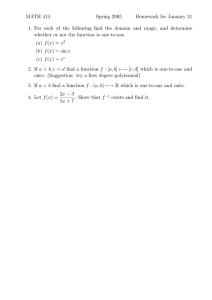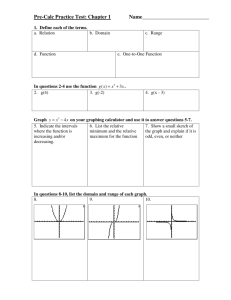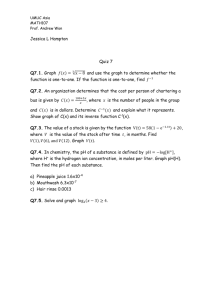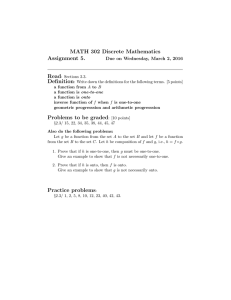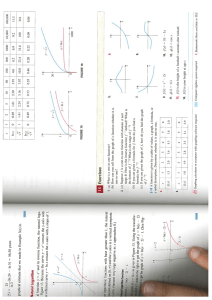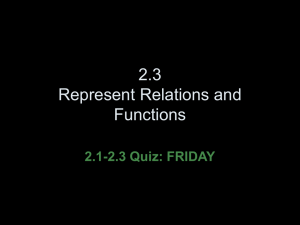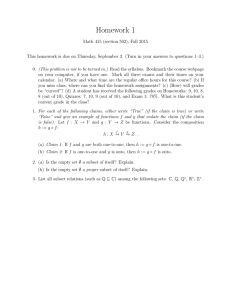One-to-one and Onto M117, October 26, 2011 (due October 28, 2011)
advertisement
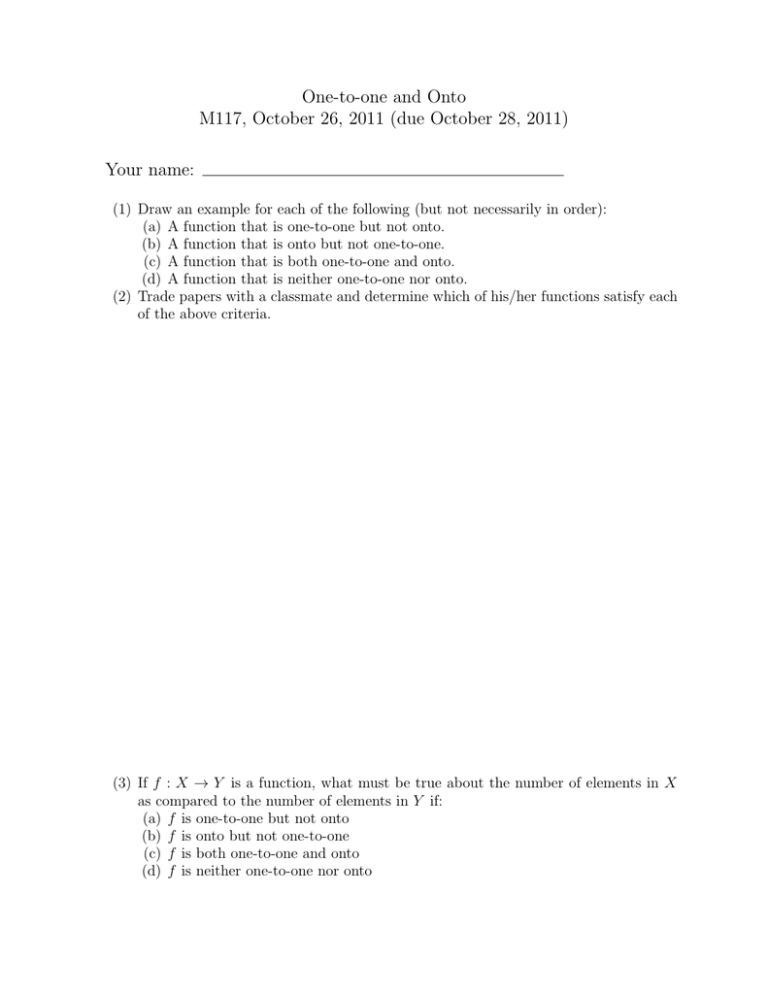
One-to-one and Onto M117, October 26, 2011 (due October 28, 2011) Your name: (1) Draw an example for each of the following (but not necessarily in order): (a) A function that is one-to-one but not onto. (b) A function that is onto but not one-to-one. (c) A function that is both one-to-one and onto. (d) A function that is neither one-to-one nor onto. (2) Trade papers with a classmate and determine which of his/her functions satisfy each of the above criteria. (3) If f : X → Y is a function, what must be true about the number of elements in X as compared to the number of elements in Y if: (a) f is one-to-one but not onto (b) f is onto but not one-to-one (c) f is both one-to-one and onto (d) f is neither one-to-one nor onto
